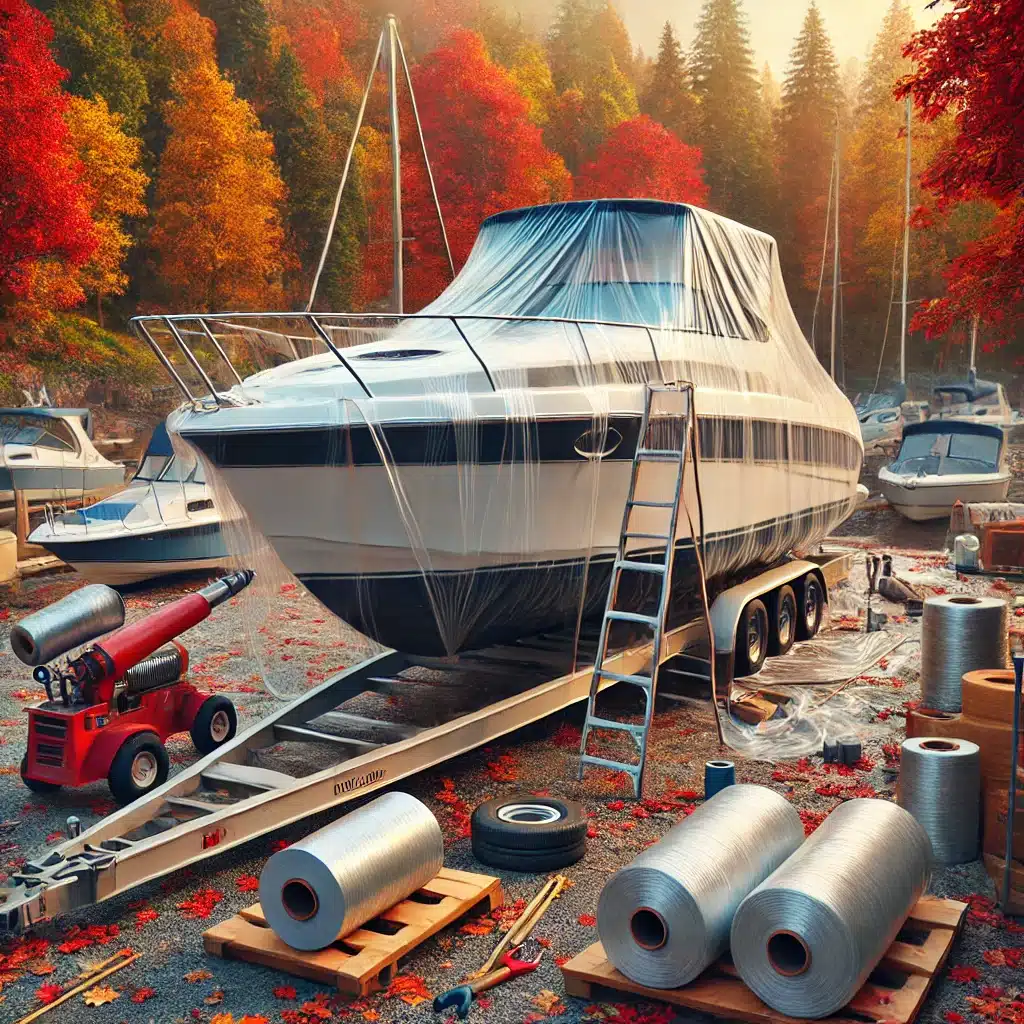Tips to Winterize Your Boat: Essential Steps to Protect Your Vessel
Winter is coming…so winterize your boat!
As the colder months approach, boat owners must take the necessary steps to protect their vessels from harsh winter conditions. Properly winterizing your boat ensures that it will be in top shape when you’re ready to hit the water again in the spring. Here are some essential tips to help you winterize your boat effectively.
1. Before You Winterize Your Boat Clean Your Boat Thoroughly
Before you start winterizing, clean your boat inside and out. Remove any dirt, grime, or salt that could corrode the exterior over time. Pay special attention to areas like the hull, deck, and windows. Cleaning the interior, including carpets and upholstery, helps prevent mold and mildew growth during storage.
- Pro Tip: Use a boat-safe cleaner and pressure wash the hull for a deeper clean.
2. Drain and Flush the Engine

Fall is the season to winterize your boat
If your boat has an inboard or outboard engine, it’s crucial to drain and flush the engine to prevent damage from freezing temperatures. Flush the engine with fresh water to remove salt, dirt, and other contaminants, and drain any water from the cooling system.
- Pro Tip: Add antifreeze to protect the engine block and cooling system during the cold months.
3. Change the Oil
Changing your boat’s oil before winter storage is essential. Old oil can contain contaminants that, if left in the engine, may cause corrosion. Replace the oil filter, and top off the engine with fresh oil to ensure your boat’s engine stays protected.
- Pro Tip: Don’t forget to replace the gear oil in the lower unit for outboard engines.
4. Protect the Fuel System
Stale fuel can cause major problems when it’s time to take your boat out again. To avoid issues, add a fuel stabilizer to your tank. This prevents the fuel from breaking down and protects the fuel system components. Fill the tank to prevent condensation buildup, which can lead to corrosion or fuel contamination.
- Pro Tip: Run the engine for a few minutes after adding the stabilizer to ensure it circulates through the entire fuel system.
5. Remove Batteries and Electronics
Disconnect and remove your boat’s batteries for winter storage. Store them in a dry, warm place to prevent freezing and damage. You should also remove any electronics and store them in a dry location. Moisture and freezing temperatures can damage sensitive equipment.
- Pro Tip: Regularly charge the battery during the off-season to prolong its life.
6. Check and Maintain the Bilge
Ensure that your bilge is clean and dry before storage. Remove any water and debris, and check the bilge pump for functionality. Add antifreeze to the bilge to prevent any residual water from freezing and causing damage.
- Pro Tip: Leave the bilge plug out during storage to allow any trapped water to escape.
7. Cover Your Boat Properly
A high-quality boat cover is essential for protecting your vessel from snow, ice, and debris during the winter months. Make sure the cover fits snugly and is waterproof. If your boat will be stored outside, consider using a heavy-duty tarp for extra protection.
- Pro Tip: Use support poles or a frame under the cover to prevent water or snow from pooling on the surface.
8. Most Important Step to Winterize Your Boat: Store Your Boat in a Safe Location
Choosing the right location to store your boat is crucial. If possible, store it in a garage or covered storage facility to protect it from the elements. If indoor storage isn’t an option, ensure your boat is elevated off the ground and adequately covered.
- Pro Tip: Consider using a boat lift or blocks to keep the boat off the ground, reducing exposure to moisture and pests.
9. Inspect and Maintain Trailer Components
If your boat is stored on a trailer, inspect the trailer for any issues that could worsen during the winter months. Check the tires for proper inflation, grease the wheel bearings, and inspect the lights and wiring.
- Pro Tip: Cover the tires to protect them from UV rays and cracking over the winter months.
Conclusion
Winterizing your boat is an essential step in maintaining its longevity and performance. By following these steps, you’ll ensure that your vessel is well-protected and ready for the water when spring arrives. Taking the time to properly winterize your boat now can save you from costly repairs and maintenance down the road.
Looking for more boating tips? Be sure to check out our blog regularly for expert advice and insights to help you make the most of your boating experience. Also, here are some other great resources from some of our partners.








